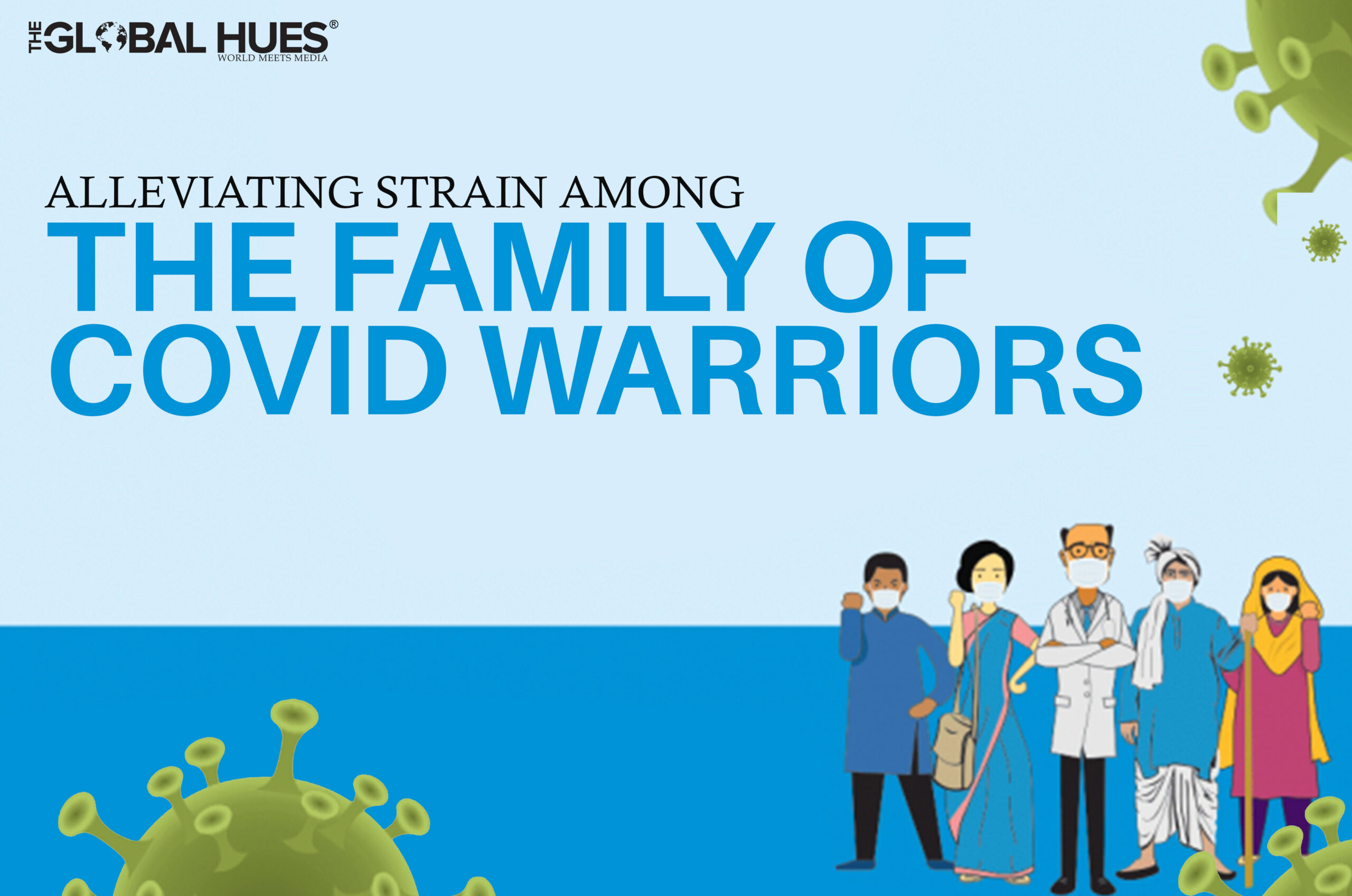Families of healthcare workers serving at the forefront in the pandemic are being affected disproportionately due to their higher exposure to the virus. In order to empathize with the woes of our healthcare heroes, one must look closely at these individual’s roles as parents, spouses, and offsprings. Families of healthcare workers often anticipate the worst as they are well acquainted with the shortage of protective equipment, human resources, and mental support available to them.
Besides, up to 40 % of the healthcare workers are known to be spouses, making childcare a quandary for these families. With both parents serving in the COVID crisis and no childcare facilities at hand, it is indeed a situation in need of attention. On top of that, getting help and support from relatives has become a strenuous ordeal due to recurrent lockdowns and quarantine requirements. Negative effects of confinement and emotional instability are being reported in HCWs children worldwide.
Stigmatization and dehumanization of HCWs & their families are rampant in sullen and uninformed neighborhoods that view them as a source of contagion. Harassing incidents like forcing them to evict apartments and denying them basic services are mounting by the day. Our support to these workers should not be limited to mere “clapping campaigns” but include proper consideration and empathy on our part towards the exceptional intensity of emotional distress faced by them.
UNDUE VULNERABILITY TO THE VIRUS
A study published in the BMJ journal holds that the healthcare workers engaged in treating COVID-19 patients were thrice more likely to be hospitalized due to the infection. This holds especially true for the ones involved in “front door” roles that require directly facing the patients, such as A&E, paramedics, and department staff. Additionally, the study reported that families of these household workers were nearly twice as likely to be infected when compared to other working-age adults. Frontline health workers and their families contribute to at least 17% of COVID-19 admissions in the working-age population.
Among the healthcare workers who were admitted, one in eight was reported critical and 2.5 percent lost their lives. Coming to the household members of these workers who were admitted to the hospital, around one in five required critical care and 13 % succumbed to the virus and died. Unlike last year, many of the workers involved in non-COVID wards are now contracting the virus and infecting their entire families.
In the month of May, a government doctor and two nurses lost their lives due to the COVID-19 infection in Tamil Nadu. Not all workers have been vaccinated and the ones who are yet to get a jab are succumbing to the virus or falling extremely sick.
A report from Rajiv Gandhi Government General Hospital tells us that the covid ward reserved for health care workers has 25-30 beds that are occupied at full capacity.
Another doctor from a city government hospital reports that there have been cases of fully vaccinated doctors contracting the virus and infecting their entire families. It’s absurd that hospitals are incapable of providing medical relief to the medical staff and their families. Getting a hospital bed is decided by the existing fault lines of class, occupation, and status. With the unprecedented surge in cases, these lines have only widened and those at the bottom of the rung are having it worse.
LACK OF PROTECTIVE EQUIPMENT
The central government has deployed around 0.5 million PPE kits to various government hospitals and yet the number is still not sufficient. A Reuters agency report estimated that India needs at least 38 million masks and 6.2 million PPE kits to deal with this global pandemic. Community health care workers like Madhubala Sharma, a 55-year-old Accredited Social Health Activist (ASHA) in Dehradun must use masks she made out of a grocery bag as she steps out to work.
She also must keep an eye out for public taps as she is not carrying any sanitizer. Families of our HCWs are at a greater risk for infections due to this. The government is struggling to cope up with the increasing spiral in demand for PPE. In some cases, doctors have had to make use of raincoats and motorbike helmets as a replacement for PPE. There have also been cases of doctors and nurses testing positive & causing a necessary shutdown of the hospitals to curb the outbreak.
NO PLACE TO STAY
Lack of lodgement arrangements for HCWs forces them to return home at the risk of infecting their families. Isolating oneself at home with a considerable number of family members is not always achievable. There have been cases of HCWs being evicted from their apartments or getting barred from entering their neighborhood. Various factors including low healthcare budget, misinformation about the virus, lack of infrastructure, shortage in personnel, rising class divide, cost of healthcare, lack of empathy and trust in the justice system song with the negative portrayal by media and politicians has lead to cases of physical and verbal violence towards them and their families.
A BELITTLING INSURANCE SCHEME
The latest proposal of providing an insurance cover of Rupees 50 lakh to each frontline worker including nurses and other hospital staff is simply fool’s gold. The Pradhan Mantri Garib Kalyan Package Insurance scheme for front-line health workers, at a close reading reveals that the insurance is only applicable in case an HCW dies due to the virus. It covers no expenses for hospital treatments or quarantine requirements. It is absurd that there is no scheme for the hospitalization of workers and their families as they perform national duty at grave risk.
Stigmatization and dehumanization of HCWs & their families, parenting stress, lack of medical support, inability to isolate, and increased risk to the virus has put these saviors in a despicably pitiful situation. Our support to these workers must include a sense of personal responsibility, consideration, and empathy towards their struggle. Without a delay, measures ought to be taken to provide social & psychological assistance to these families, along with facilities for childcare.
Also Read:
- Frontline Healthcare Workers: Coping With Emotional Trauma
- Hitesh Gungan: An Entrepreneur Delivering Happiness During Times Of Crisis
- ZIQITZA – Vigorously Rescuing Lives In The Pandemic
- Adar Poonawalla: The Vaccine Prince Of India\
- Khaana Chahiye: Battling Hunger Along With Covid-19
- Khushiyaan Foundation: Serving Humanity In Times Of Crisis




